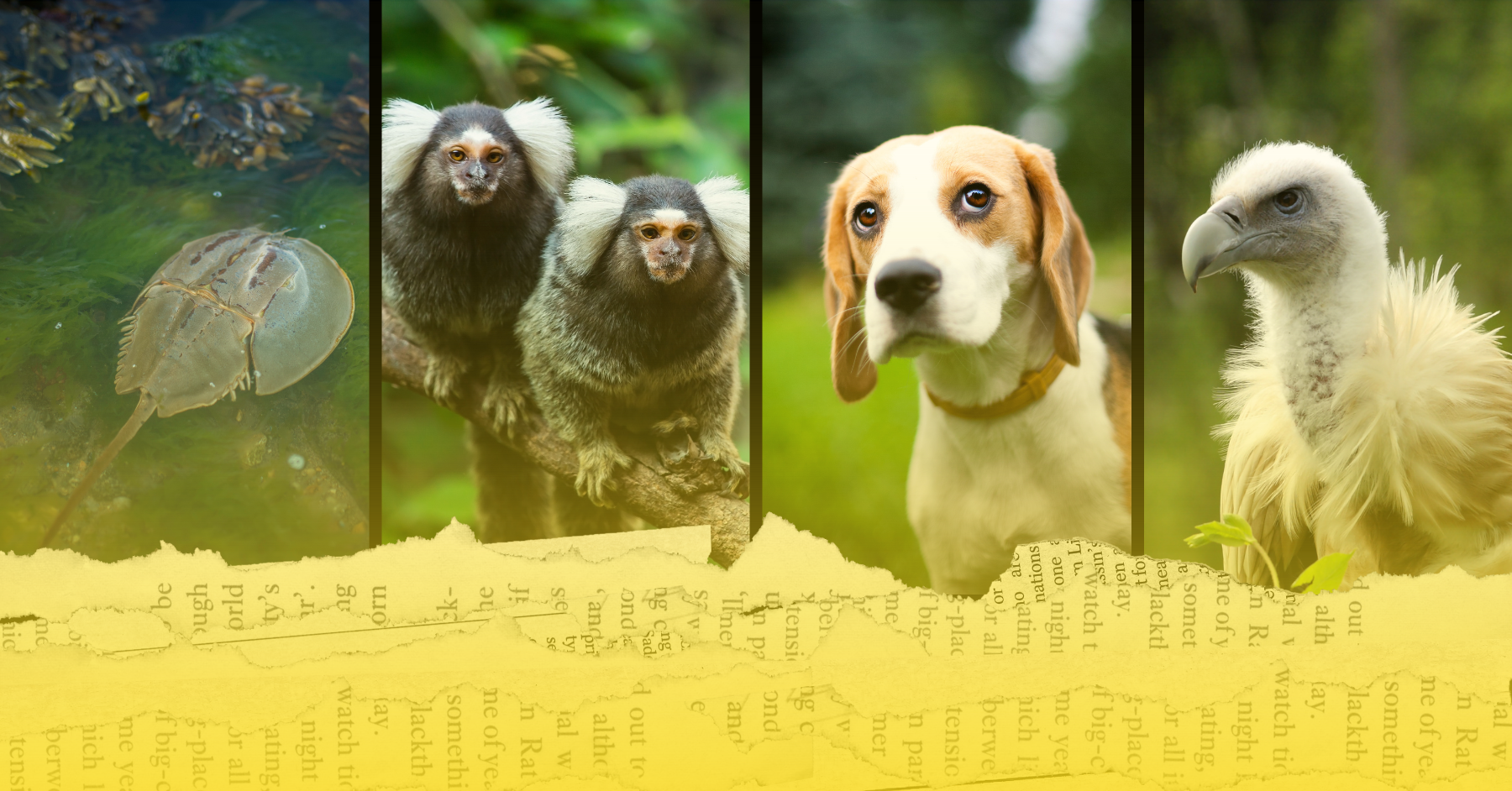
Here’s a roundup of this week’s biggest news stories related to animal research—all the recent media coverage you need to know right now to be the most effective activist for animals in labs.
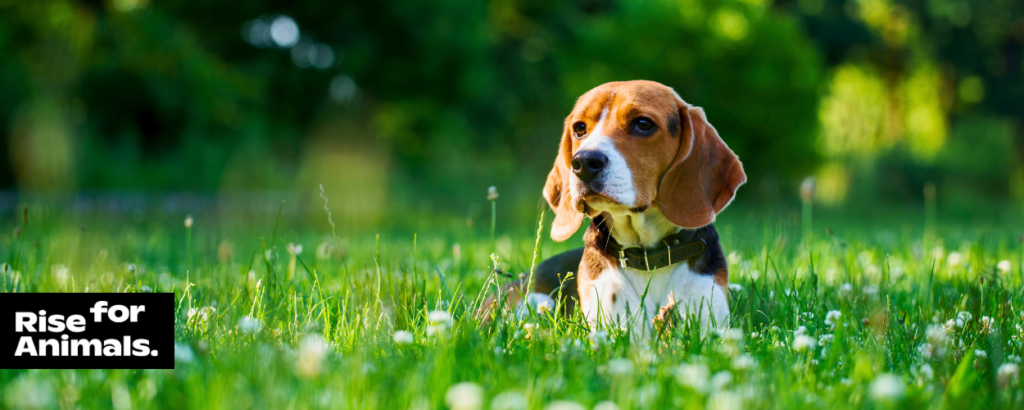
Species Spotlight: Beagles
Rise for Animals, 9/06/2024
Did you know? The word “Beagle” is thought to come from the French word begueule, which translates to “gaped throat”, or from the Gaelic word beag, which translates to “small”. Learn more about these amazing companions, laboratory survivors, and so much more: 📰 Full Story →

New Research Reveals Monkeys Have Names for Each Other
Stephen Beech, 8/29/2024
“Marmosets use specific calls — known as ‘phee-calls’ — to identify and communicate with each other, say scientists.”
“They discovered that the monkeys use their ‘phee-calls’ to address specific individuals. The team also found that the marmosets could discern when a call was directed at them and responded more accurately when it was.”
“The researchers also discovered that family members within a marmoset group use similar vocal labels to address different individuals and employ similar sound features to code different names, resembling the use of names and dialects in humans.” 📰 Full Story →

Protest Action Planned at Washington Dulles Airport Over Cruel Monkey Imports
Len Varley, 8/30/2024
“Animal rights activists representing PETA are set to make waves at Washington Dulles International Airport (IAD) during one of the year’s busiest travel weekends. Supporters of the group PETA will gather outside Ethiopian Airlines’ departure terminal in a concerted protest action. It targets the carrier’s involvement in transporting endangered long-tailed macaques from Mauritius and Southeast Asia to U.S. laboratories for experimentation.”
“Evidence was presented during the federal trial of accused Cambodian monkey smuggler Masphal Kry. It suggested the airline’s involvement in transporting hundreds of monkeys allegedly taken illegally from their forest homes. Further compounding the issue, the [USDA] cited Ethiopian Airlines last year for multiple violations of animal protection laws.” 📰 Full Story →
🔎 See additional coverage of the PETA-led demonstration, as covered by WJLA TV.
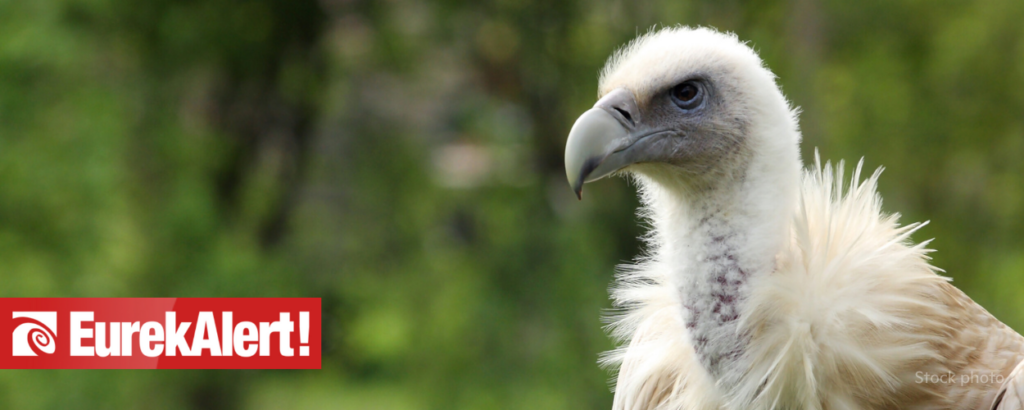
Like People, Vultures Get Set in Their Ways and Have Fewer Friends As They Age
University of California – Los Angeles, 8/30/2024
“If you’d rather be watching TV on your couch than dancing at the club, you might have something in common with aging griffon vultures. New research shows that young griffon vultures move frequently between sleeping sites in different locations and interact with many friends but get set in their ways as they age, roosting in the same spots with the same individuals. As moving between roosts becomes a grind, older vultures follow the same path, establishing movement routines, that are not seen in young vultures.”
“The research . . . shows that like many people, older vultures tend to have fewer, more selective friendships with stronger bonds.” 📰 Full Story →

Alpha Laboratories Adds Non-Animal-Derived Endotoxin Detector to Range
Cleanroom Technology, 9/2/2024
“In line with its sustainability ethics, Alpha Laboratories has introduced . . . a non-animal derived solution for bacterial endotoxin testing (BET) in research, pharmaceutical, and medical equipment manufacturing. Conventionally, LAL reagents are sourced from Atlantic Horseshoe Crabs. Over 1 million crabs have been bled in 2022 for the reagent.” 📰 Full Story →

ETSU Admits Breaking Law, More Animal Abuse
Elizabethton Star, 9/3/2024
“A National Research Watchdog is releasing several previously unpublished East Tennessee University reports where the university admits it broke federal law by performing unapproved experiments that killed dozens of animals.”
“‘It is quite clear that the ETSU administration has failed to properly enforce federal regulations,’ . . . ‘It is also quite clear that ETSU researchers think that they are above the law and can perform whatever procedures they like without IACUC approval, regardless of whether the animals live or die.’” 📰 Full Story →
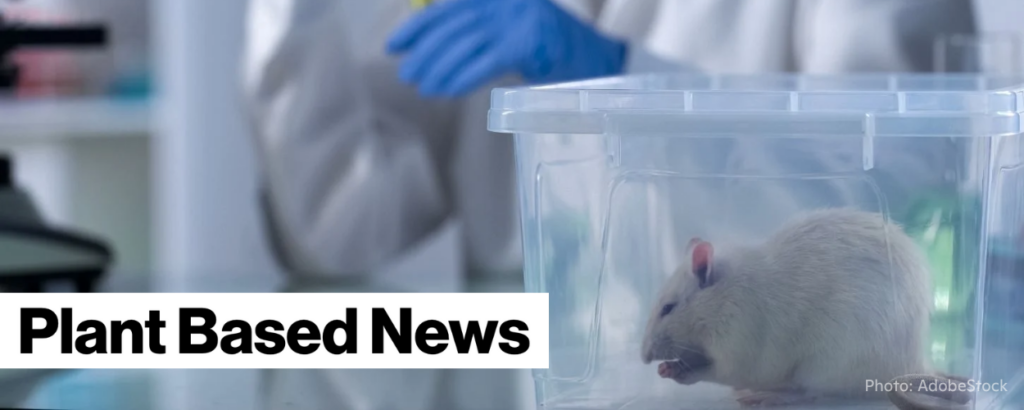
‘Imprudent’ Use of Antibiotics in Animal Research Undermines Public Health, Says Study
Liam Pritchett, 9/5/2024
“A recent survey of nearly 100 labs found that the majority of antibiotic use in animal research is avoidable and likely contributes to human drug resistance.”
“The cross-sectional study surveyed veterinarians and facility managers at 95 rodent testing laboratories in Australia and New Zealand (Aotearoa). It found that 71 percent routinely administered unregulated and ‘unnecessary’ antimicrobial medicines such as antibiotics.”
“Workers frequently administer antimicrobials to laboratory animals through drinking water, and 81 percent of surveyed labs reported ‘disposing’ of it by pouring it down the drain, untreated.” 📰 Full Story →
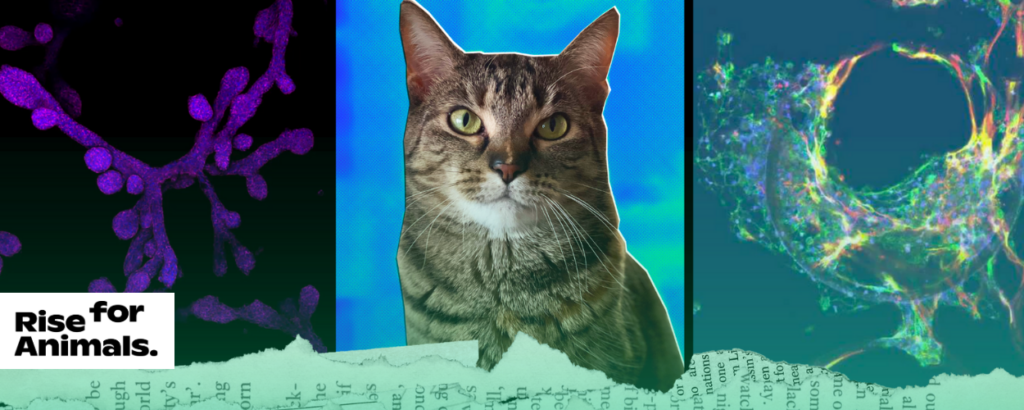
In case you missed it:
Non-Animal Research in the News: August 2024
Compiled by Rise for Animals, 9/4/2024
New, groundbreaking innovations in human-relevant research show progress in infertility, Crohn’s disease, mental health concerns, Alzheimer’s disease, and more. It’s all proof there’s no need to experiment on animals. 📰 Full Story →